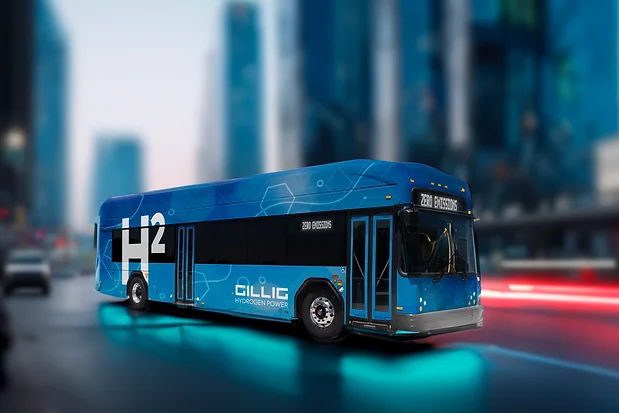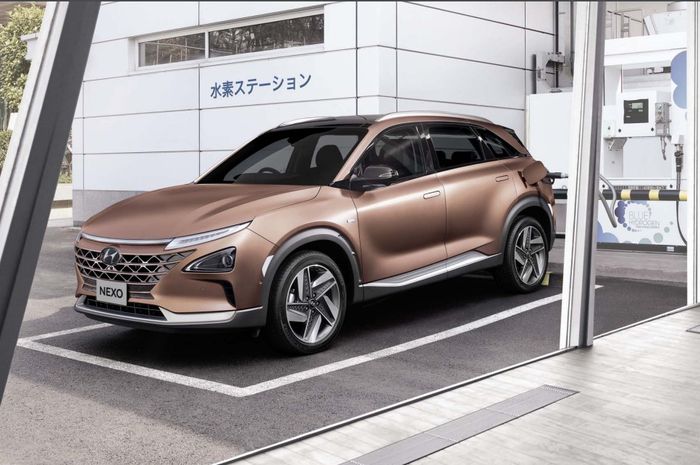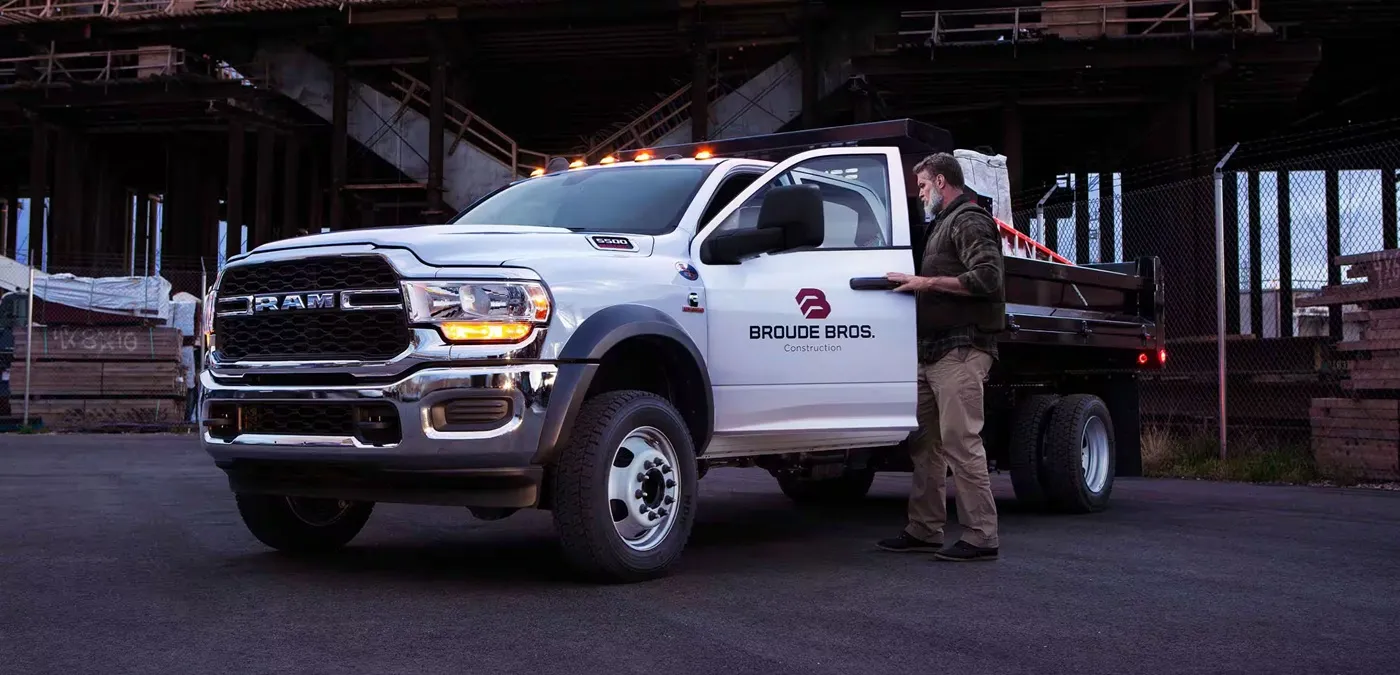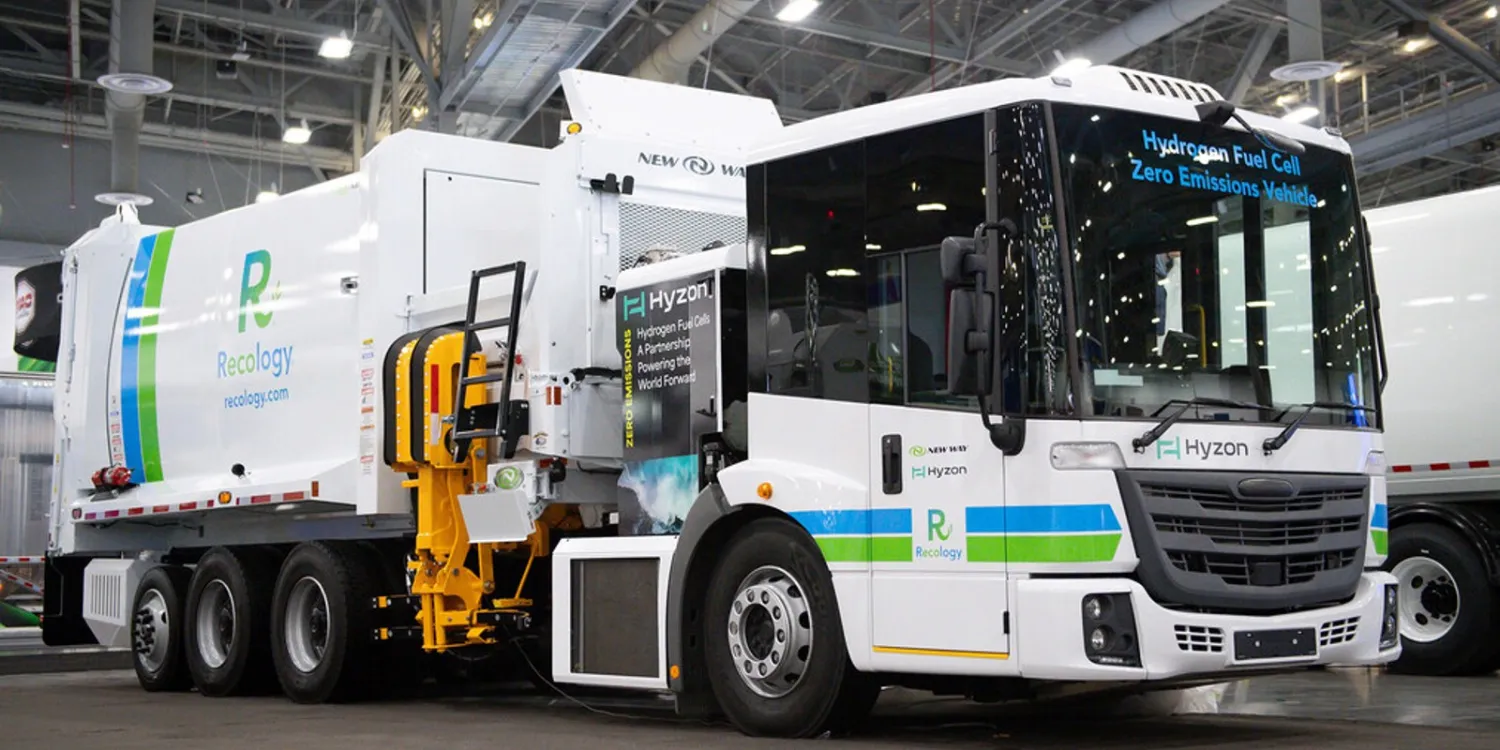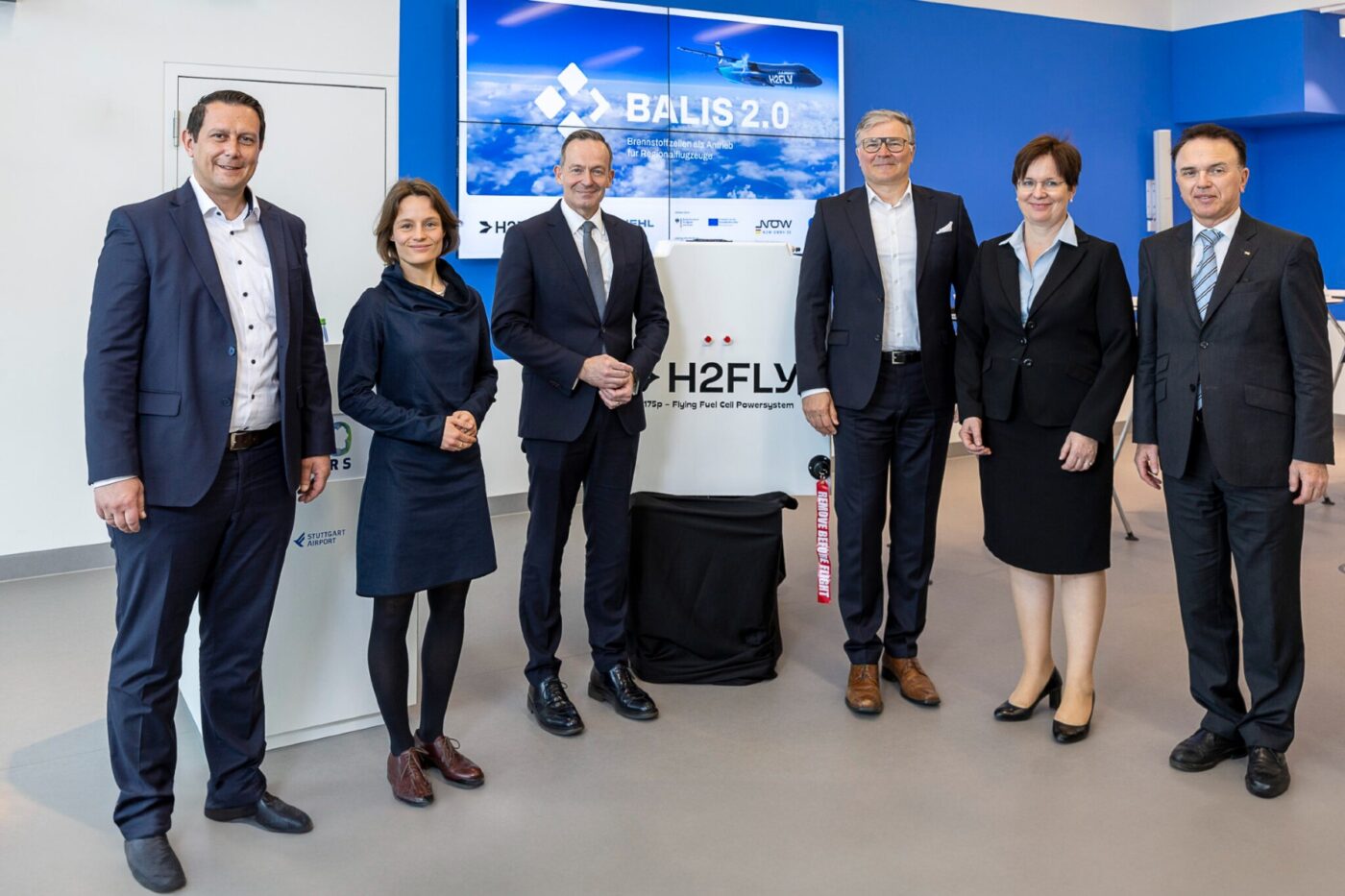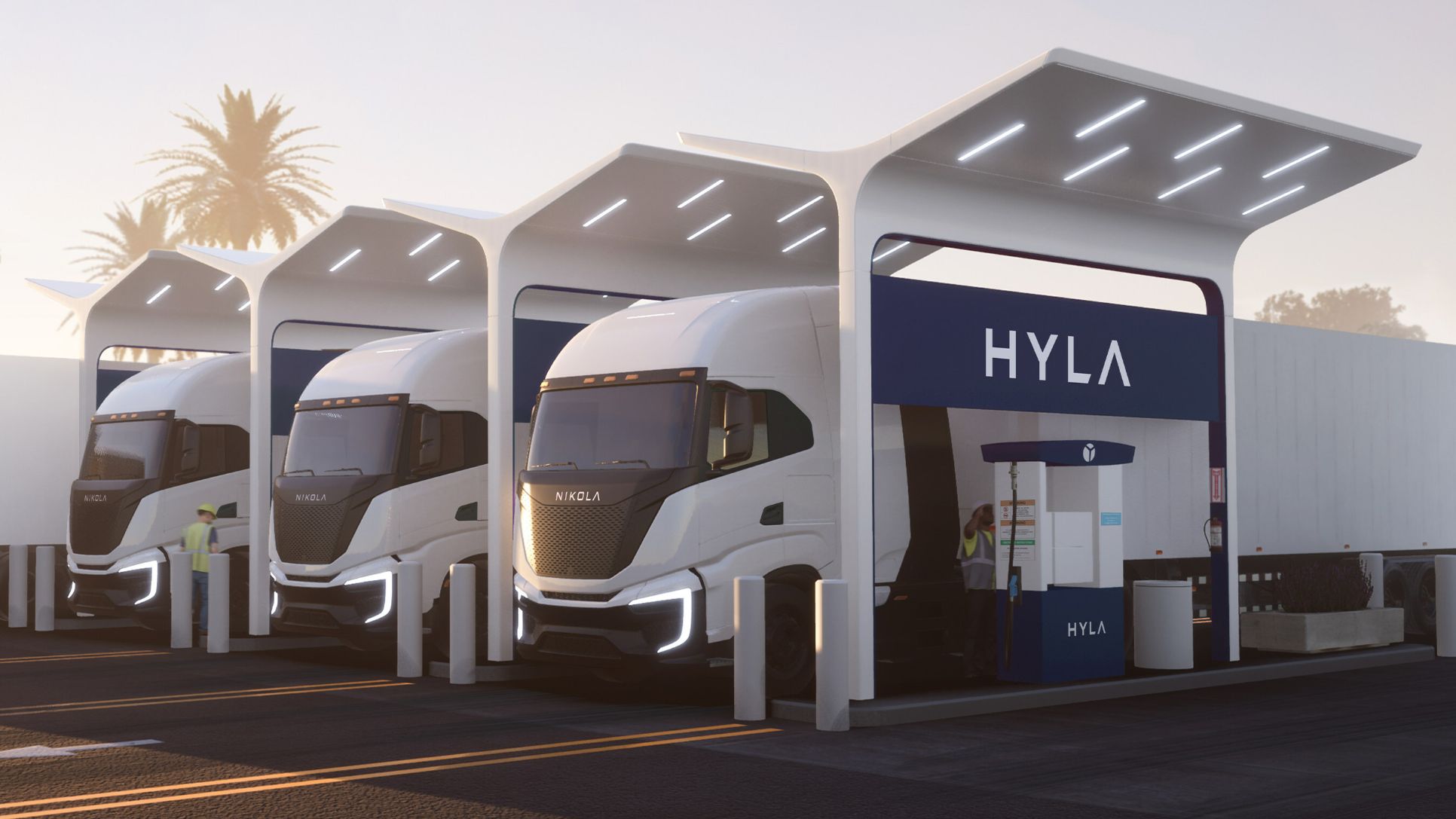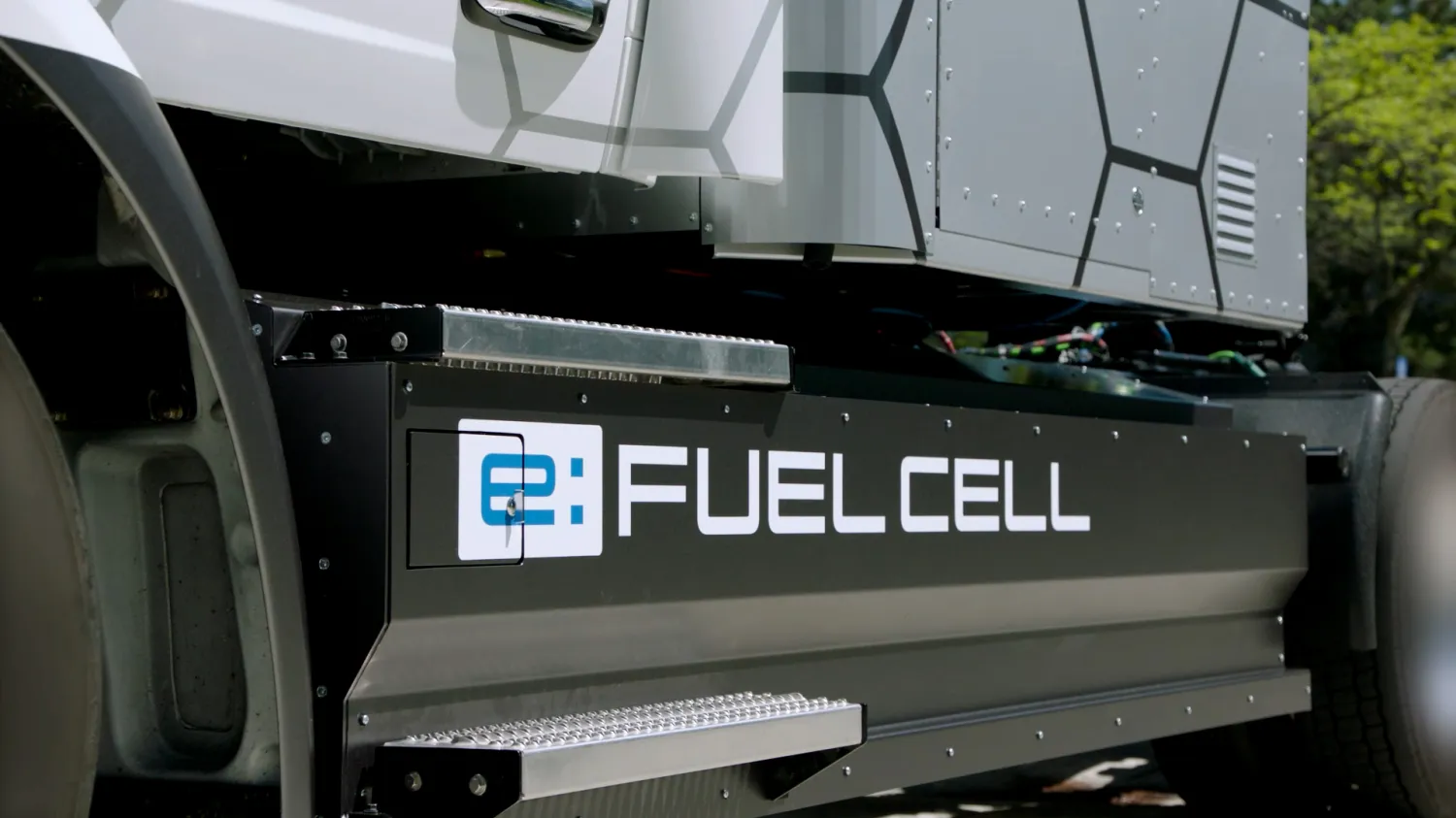Gillig, a North American bus manufacturer, has announced its entry into the hydrogen fuel cell bus market, marking a significant expansion of its zero-emission portfolio. Developed in collaboration with BAE Systems and Ballard Power Systems, the new model is scheduled to begin production in 2026.
While Gillig has primarily focused on battery electric and hybrid buses in the past, the addition of hydrogen fuel cell technology represents a strategic shift. The company recently signed a framework agreement to supply up to 395 battery-electric buses to Seattle and has utilized Akasol battery systems from BorgWarner for its electric buses.
Details regarding the technical specifications of the hydrogen fuel cell bus have not yet been disclosed. However, according to a press release, the integration of Ballard’s fuel cell technology and BAE Systems’ electric drivetrain with Gillig’s low-floor platform will result in an emission-free solution with a long range.
Gillig sees the introduction of hydrogen fuel cell buses as an opportunity to expand its customer base, offering reliable, zero-emission vehicles suitable for diverse climates and terrains. Benjamin Grunat, Gillig’s Vice President of Product Planning and Strategy, emphasized the company’s commitment to understanding the unique operational challenges faced by transit agencies. He stated, “Understanding the unique operational challenges faced by each transit agency – from varying duty cycles and geographic terrains to diverse climates and depot locations – is fundamental to our vision of improving quality of life through transformative mass transit solutions.”

